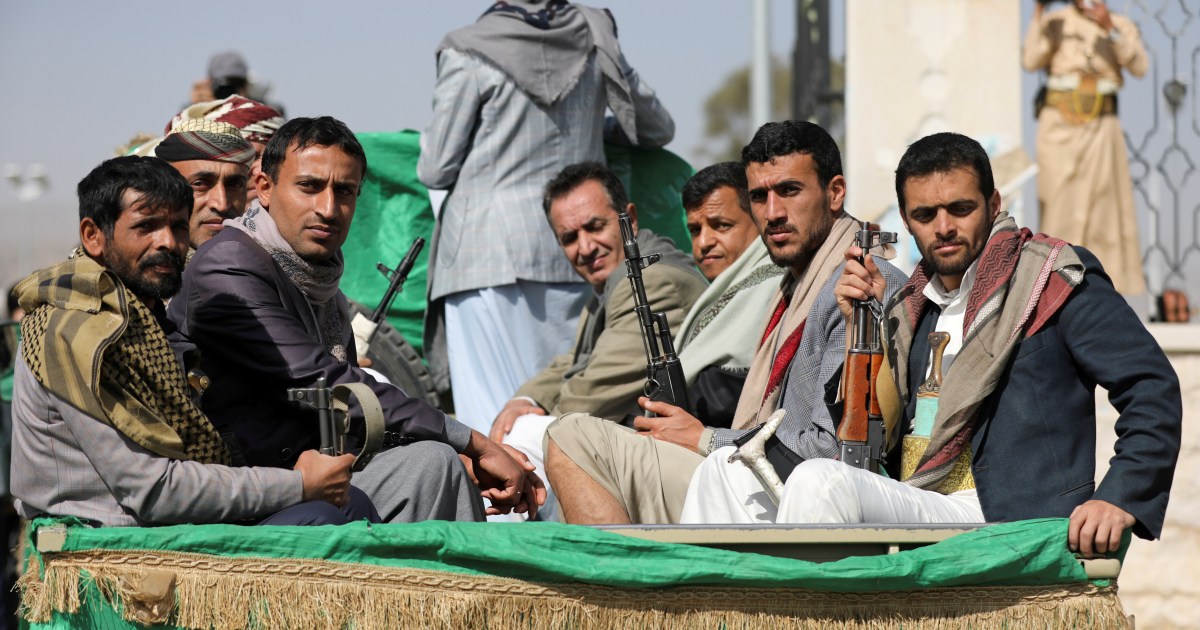On Friday, at least 60 of the forces loyal to the Yemeni government and the Houthis were killed in battles that broke out in the northern Yemeni governorate of Marib, according to government sources.
The French Press Agency quoted a Yemeni government source as saying that 27 government forces and 34 Houthis were killed during clashes on several fronts in the Ma'rib governorate on Friday, explaining that these battles "are the fiercest" since the Houthi group's attack on the province began this month.
The official confirmed that the Houthis "infiltrated the hills west of the Ma'rib Dam, and the area witnessed the heaviest battles."
Another military source said that the pro-government forces "were able to repel Houthi attacks southwest of the city of Marib," while referring to the outbreak of violent clashes in the Ablah area, south of Ma'rib, which "lasted for more than 8 hours, and led to deaths on both sides."
Yemeni sources said that the Houthis launched an attack on the National Army positions in the Sarwah district, west of the Ma'rib governorate, and in the Raghwan district, north of the governorate.
For more than a year, the Houthis, who are accused of receiving support from Iran, have been trying to control the oil-rich Marib Governorate, which is the last government stronghold in northern Yemen.
After a period of calm, on the eighth of this month, the Houthis resumed their attack on Yemeni government forces backed by the Saudi-Emirati coalition.
Houthi demonstrations
On Friday, the Houthi group organized demonstrations in several Yemeni governorates under its control to denounce the "Saudi-led military operations of the Arab coalition" against it.
Al-Masirah TV said that the demonstrations, in which thousands participated, took place in the capital, Sanaa, Al-Mahwit, Saada (north) - the stronghold of the group’s leader, Abdul-Malik Al-Houthi - and Hodeidah, Hajjah, Rayma (west) and Al-Bayda (center).
The demonstrators raised, according to clips published by the group’s channel, slogans against the Saudi-led coalition, condemning what they called "the continued siege of the US-Saudi aggression on Yemen."
The head of the Supreme Revolutionary Committee of the Houthis, Muhammad Ali Al-Houthi, said, during a speech before the crowd in Sanaa, that "US President Joe Biden and his special envoy to Yemen (Timothy Lenderking) do not carry any peace plan for Yemen."
The statements issued by the demonstrations called on the group’s supporters to “mobilize the public towards the battle fronts to confront the aggression and thwart its projects aimed at occupying Yemen and plundering its wealth and goods,” as she put it.
On Thursday evening, the UN Security Council adopted a resolution extending the international sanctions imposed on Yemen for a year.
The decision issued under Chapter 7 of the United Nations Charter (which means that armed force may be used to implement it) renewed the financial sanctions regime and travel bans against individuals and entities threatening peace, security and stability in Yemen until February 28, 2022, and extending the mandate of the expert group on monitoring the arms embargo. Until March 28 of the same year.
Yemen has been subject to sanctions that have banned the export of arms since 2015 under Security Council Resolution No. 2216, issued against the "Houthi" group and the forces loyal to the late President Ali Abdullah Saleh, and they are renewed annually.
The resolution, which bore the number 2564, condemned "the continuing escalation in Marib, Yemen, and the continued Houthi attacks on Saudi Arabia."
He called for "an immediate cessation of attacks without preconditions, a reduction in the escalation in all parts of Yemen and a cease-fire in all parts of the country."

